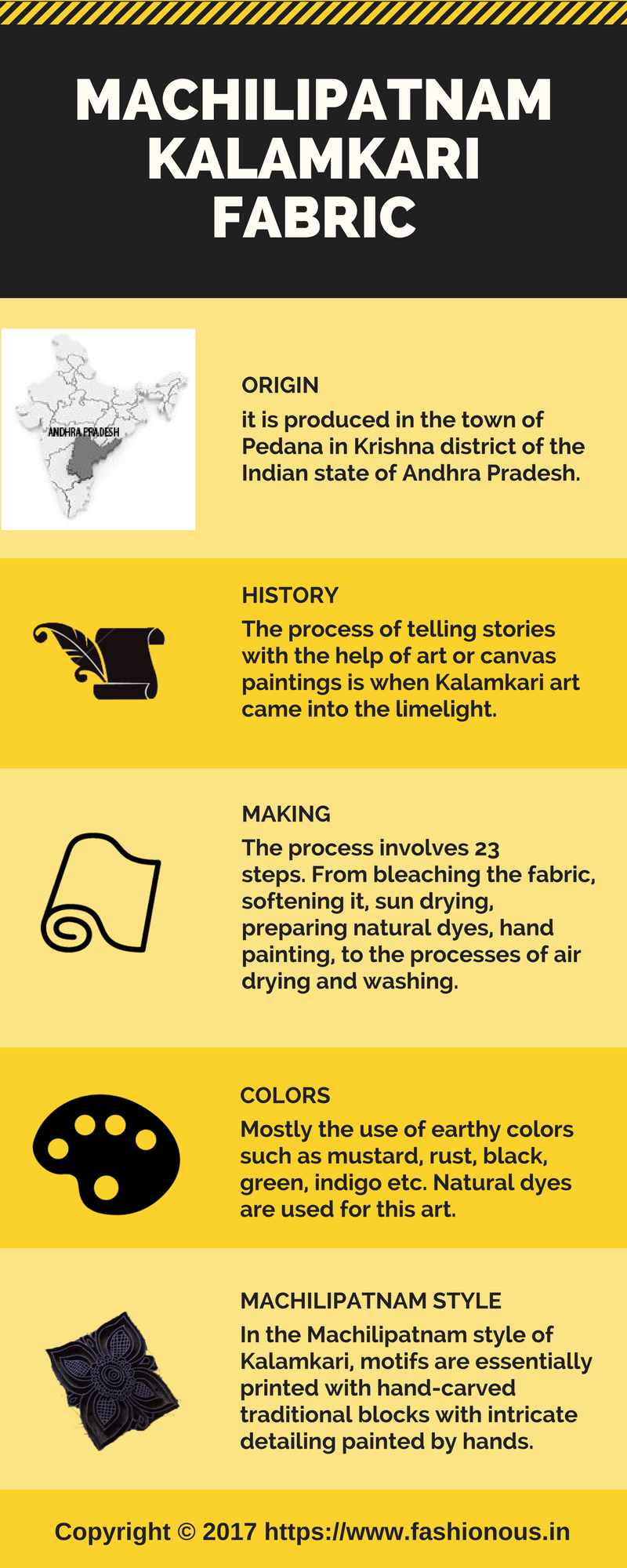Kalamkari is a style of natural dyed hand-painting or block-printing of textile. Machilipatnam kalamkari and Srikalahasti Kalamkari are the two styles of kalamkari work in India and crafts using these style are produced in the state of Andhra Pradesh, India.
Vegetable dyes are prepared and applied onto the fabric with the help of wooden blocks or "kalam" (pen) is used for freehand drawings and filling in the colors.The process involves 17 laborious steps to highlight the beauty of delicate patterns. Approximately 8 to 10 craftsmen are involved in creating one yard of this fabric. Characteristic features of the kalamkari pattern include the richness of the colors produced by rapid absorption of natural dyes.
Kalamkari Art is usually used to depict stories and scenes from the Indian Mythology. Traditional motifs include cypress trees entwined with a flowering vine, poppies and intricate jaal, all in indigo and white. These motifs are used as an expression of summer in India. Equally, noteworthy is the size of the Machilipatnam blocks and the scale of the traditional print area, both of which exceed other block painting traditions in India.

Travellers would often tell stories from Ramayana, Mahabharata, Panch Tantra and used hand paintings to depict tales. This practice of numerous craftsmen eventually got recognition in the Mughal era. Today also, the art is being followed with the same manual techniques and dedication, with Andhra Pradesh being the largest producer of Kalamkari Sarees. A notable fact is that only natural dyes are used in the striking designs of kalamkari painting.
Chennur Silk and Mal-Mal Cotton are the primarily used fabrics on which the Kalamkari art is done. The traditional Kalamkari Sarees sport a plethora of designs withdrawn from the rich Hindu religious heritage. Artworks of Gods and Goddesses such as Krishna, Ganesha, Vishnu, Saraswati, Radha-Krishna, Shiva, etc, are amongst the most common and can be found in vibrant colours or elegant monochrome shades.
The art of kalamkari is the bread-winner for a number of families in the state of Andhra Pradesh. This art has been passed on from generation to generation and is still being practiced with reverence despite all the challenges faced by the artisans.
Click here to buy sarees with Kalamkari Art.

